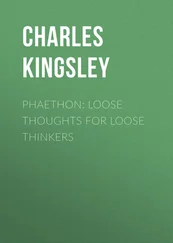Petina Gappah - An Elegy for Easterly
Здесь есть возможность читать онлайн «Petina Gappah - An Elegy for Easterly» весь текст электронной книги совершенно бесплатно (целиком полную версию без сокращений). В некоторых случаях можно слушать аудио, скачать через торрент в формате fb2 и присутствует краткое содержание. Год выпуска: 2009, Издательство: Faber & Faber, Жанр: Современная проза, на английском языке. Описание произведения, (предисловие) а так же отзывы посетителей доступны на портале библиотеки ЛибКат.
- Название:An Elegy for Easterly
- Автор:
- Издательство:Faber & Faber
- Жанр:
- Год:2009
- ISBN:нет данных
- Рейтинг книги:4 / 5. Голосов: 1
-
Избранное:Добавить в избранное
- Отзывы:
-
Ваша оценка:
- 80
- 1
- 2
- 3
- 4
- 5
An Elegy for Easterly: краткое содержание, описание и аннотация
Предлагаем к чтению аннотацию, описание, краткое содержание или предисловие (зависит от того, что написал сам автор книги «An Elegy for Easterly»). Если вы не нашли необходимую информацию о книге — напишите в комментариях, мы постараемся отыскать её.
An Elegy for Easterly — читать онлайн бесплатно полную книгу (весь текст) целиком
Ниже представлен текст книги, разбитый по страницам. Система сохранения места последней прочитанной страницы, позволяет с удобством читать онлайн бесплатно книгу «An Elegy for Easterly», без необходимости каждый раз заново искать на чём Вы остановились. Поставьте закладку, и сможете в любой момент перейти на страницу, на которой закончили чтение.
Интервал:
Закладка:
In the end, they came to pay their respects and to talk about the funeral.
‘His body will lie in state at Stoddard Hall,’ the presidential spokesman said. ‘He will proceed to Warren Hills for a full military burial.’
‘Those were not his wishes,’ I said. ‘He wishes to be buried in his village.’
There was silence.
‘His bones would not rest easy, he said, if he did not lie in the land in which he was born, where his ancestors are buried, and where he wants the bones of his children, and his children’s children and their children in turn to lie with his when their time comes.
‘It was his obsession in the end,’ I continued. ‘He believed that only if he lay in his home village would he find peace.’
I was sure that the reference to a potentially restless spirit would appeal to the atavistic instincts of the Cabinet members. They believe in the supernatural, after all, haunting traditional healers for success-guaranteeing potions and agitating for a law to punish witchcraft.
‘We have no option but to go ahead with the funeral,’ the spokesman insisted. ‘The announcement has been made by the President himself; to go back would …’ His voice trailed off but he did not need to finish the sentence. The President is not a man who loses face.
In the end, it was perhaps not so much the fear of my husband’s ngozi spirit that made them treat me with respect as it was the necessity of avoiding the embarrassment that would result if I carried out my threat to go to the private press. They sent one emissary after another to talk to me, until they sent three heavyweights from the Politburo. After allusions to the family honour and talk of a personal triumph for my husband, came this plea: ‘Think of how good it will be for his region.’
My husband was from the restive tribe in the south that sleeps and feeds and knows not the President. They carry a chip on their shoulder the size of their province. They do not have enough power, enough heroes at the national shrine. My husband’s hero status would, they believed, quell the restive tribe, and still the fires that burned in the party over who will succeed the President. And in that realisation, I saw my future. I have no home in my own country to go to; everything that I have invested is here. I could choose to be an official widow to be trotted out at every commemoration of the heroes.
Or I could choose my own path.
‘I want my husband’s farm back,’ I said, ‘and I want it registered in title deeds in my name. I also want an uncontested seat in the new Senate.’
So the bargain was sealed: for a seat in the new Senate, and a farm in my own name, I would close my mouth and let them bury wood and earth in his name. They jumped at this; how could they not, when my husband had died in early August, which meant that they could have a real funeral on the very day in the middle of August that they commemorate men of the ruling party who have died still in agreement with the President. And so the spokesperson arranged everything, the coffin, the service, the switch after the lying in state at Stoddard Hall. He measured out exactly the precise kilograms of earth to represent my husband’s dead weight. ‘It must feel like the soldiers are carrying a real body,’ he said.

They have sounded the last post and fired the twenty-one-gun salute. I count slab upon slab of polished marble covering the desiccated bones of the dead heroes. One of them will soon cover the earth that is standing in for the flesh and bones of my husband.
There are many such secrets here, what the French call les secrets de Polichinelle , secrets that everyone may know but which may not be spoken. It is known that one of the heroes we buried recently was not the fine upstanding family man of the presidential speech but a concupiscent septuagenarian who died from a Viagra-induced heart attack while inside an underage girl. And it is known that the Governor of the Central Bank who has vowed to end illegal sales of fuel is himself involved in sales of fuel on the black market. And that the President … well, that which is not spoken or written down is not real.
Only the official truth matters, only that truth will be handed down through the history books for the children to learn. This they will learn: my husband is a national hero who lies at the Warren Hills. Warren Hills is the national shrine in a land presided over by the wisest of rulers. The land is one of plenty with happy citizens. The injustices of the past have been redressed to consolidate the gains of the liberation struggle. And in that happy land, I will be a new farmer and senator.
An Elegy for Easterly
It was the children who first noticed that there was something different about the woman they called Martha Mupengo. They followed her, as they often did, past the houses in Easterly Farm, houses of pole and mud, of thick black plastic sheeting for walls and clear plastic for windows, houses that erupted without City permission, unnumbered houses identified only by reference to the names of their occupants. They followed her past Mai James’s house, Mai Toby’s house, past the house occupied by Josephat’s wife, and her husband Josephat when he was on leave from the mine, past the house of the newly arrived couple that no one really knew, all the way past the people waiting with plastic buckets to take water from Easterly’s only tap.
‘Where are you going, Martha Mupengo?’ they sang.
She turned and showed them her teeth.
‘May I have twenty cents,’ she said, and lifted up her dress.
Giddy with delight, the children pointed at her nakedness. ‘ Hee, haana bhurugwa ,’ they screeched. ‘ Hee , Martha has no panties on, she has no panties on.’
However many times Martha Mupengo lifted her dress, they did not tire of it. As the dress fell back, it occurred to the children that there was something a little different, a little slow about her. It took a few seconds for Tobias, the sharp-eyed leader of Easterly’s Under-Eights, to notice that the something different was the protrusion of the stomach above the thatch of dark hair.
‘ Haa , Martha Mupengo is swollen,’ he shouted. ‘What have you eaten, Martha Mupengo?’
The children took up the chorus. ‘What have you eaten, Martha Mupengo?’ They shouted as they followed her to her house in the far corner of Easterly. Superstition prevented them from entering. Tobias’s chief rival Tawanda, a boy with four missing teeth and eyes as big as Tobias’s ears were wide, threw a stick through the open doorway. Not to be outdone, Tobias picked up an empty baked beans can. He struck a metal rod against it, but even this clanging did not bring Martha out. After a few more failed stratagems, they moved on.
Their mouths and lungs took in the smoke-soaked smell of Easterly: smoke from outside cooking, smoke wafting in through the trees from the roadside where women roasted maize in the rainy season, smoke from burning grass three fields away, cigarette smoke. They kicked the empty can to each other until hunger and a sudden quarrel propelled Tobias to his family’s house.
His mother Mai Toby sat at her sewing machine. Around her were the swirls of fabric, sky-blue, magnolia, buttermilk and bolts of white stuffing for the duvets that she made to sell. The small generator powering the sewing machine sent diesel fumes into the room. Tobias raised his voice above the machine.
‘I am hungry.’
‘I have not yet cooked, go and play.’
He sat in the doorway. He remembered Martha.
‘Martha’s stomach is swollen,’ he said.
‘Mmmm?’
Читать дальшеИнтервал:
Закладка:
Похожие книги на «An Elegy for Easterly»
Представляем Вашему вниманию похожие книги на «An Elegy for Easterly» списком для выбора. Мы отобрали схожую по названию и смыслу литературу в надежде предоставить читателям больше вариантов отыскать новые, интересные, ещё непрочитанные произведения.
Обсуждение, отзывы о книге «An Elegy for Easterly» и просто собственные мнения читателей. Оставьте ваши комментарии, напишите, что Вы думаете о произведении, его смысле или главных героях. Укажите что конкретно понравилось, а что нет, и почему Вы так считаете.












